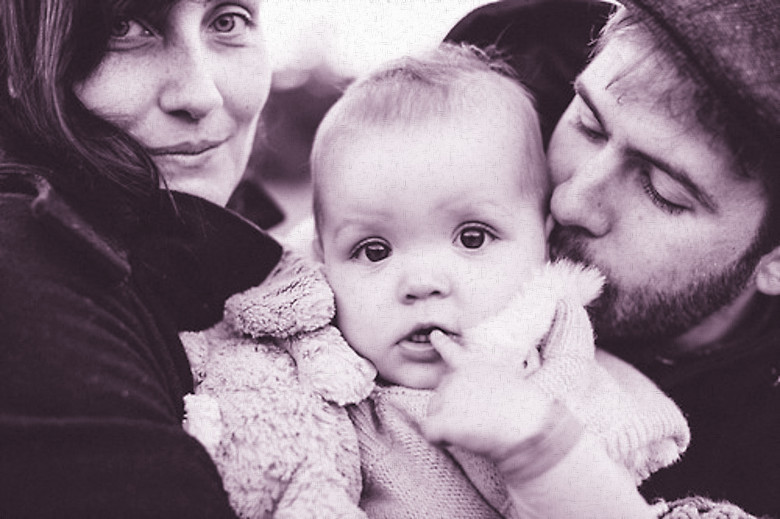Childhood today has become a mad rush to adulthood. As parents, we are seduced to believe that if we’re not constantly expecting something out of our children they will somehow fall behind and never catch up. We feel as if we are “bad” if we don’t set the bar for their success as high as possible; in fact, we equate high expectations with greater love.
Before we know it, our children’s lives are replete with one activity after another—all in an obsession to reach the fantasia of success and happiness.
In our zeal for perfecting our children’s “potential” we constantly fuss and fidget over them, correcting them ad nauseum, tweaking them 24/7. The more we attempt to micromanage our children’s progress, the more society encourages us to become dependent on “experts” to “fix” our children if they aren’t performing to a certain standard. Thus, it has become completely normal for parents to harbor fears that something may be “wrong” with how their child is developing both socially and academically.
As a clinical psychologist, I often have parents asking whether their child is:
- Too shy
- Too quiet
- Too precocious
- Too aggressive
- Too impulsive
- Too disengaged
- Too unmotivated
- Too carefree
- Too meticulous
- Too impressionable
- Too unfocused
- Too lazy
I call this the “tyranny of ‘too.’” These and countless other expressions of “too” are manifestations of parental worry, disappointment, and even guilt about failing to parent adequately. Underneath all of it is fear.
The fact is, modern society’s obsession with our children’s future success, defined according to how we think it should be defined, places a huge burden on our children to reach for impossible standards and an unattainable level of excellence. Such a burden is psychologically unhealthy for any child.
If children are unable to meet our ideal of who they should be, either because their inherent temperament doesn’t allow it or because their innate desires are so fundamentally different, our disappointment can have a damaging impact on them.
Countless children suffer from guilt, and in many cases live in a state of shame, because they are unable to perform to their parents’ satisfaction. This can result in children looking for ways to rid themselves of the shame they feel about being inadequate. They may start being distracted at school, experiencing angry outbursts, or even turning their anger toward themselves in the form of some kind of self-harm.
Placing expectations on our children may well result in an emotional Grand Canyon between us.
When children experience such feelings, they can’t help but create a disconnect within themselves. After all, imagine being constantly told that you are supposed to be different from the way you are. How would you feel?
Instead of buffering our children with empowerment, our constant demands of them creates a piercing hesitancy about their sense of worth and place in their life. More than anything, it causes a widening gap between our children and ourselves as they intuitively sense that they are being disapproved of and causing us disappointment.
If there is one fundamental lesson I wish for readers to take from my new book, The Awakened Family, it is this: Placing expectations on our children instead of allowing their own natural inclinations to emerge spontaneously may well result in an emotional Grand Canyon between us. As the gap widens, a flood of anxiety will rush in to fill it—anxiety not only for your child but also for yourself.
Not understanding the origins of this anxiety, we mistake it for a call for even more pressures, and we think, Oh, my child is unhappy because they are not doing enough or don’t feel accomplished enough, so we push them even more. Little do we realize that every push creates a further separation between us.
Of course, no parent likes to believe they are causing their children harm. If they understood how these expectations were actually harming their children instead of helping, they would immediately stop. The reason we continue to place these expectations on our children is because we truly believe it is in their best interests.
Why? Because this is how we were raised. We were raised with a mentality that happiness and joy were commodities that could be purchased through accomplishments, fancy schools, wealthy ZIP codes, and other status symbols. This is why we push our children so—so that they, too, can ultimately find that state of peace we long for.
Only when we turn the table and face the reality that peace is not something that can be purchased from anything extrinsic will we end the manic pressure we place on our children. It is only when we teach our children that they do not need to “create” an identity—they already have one; they were born with one—that our children will harbor an unyielding resilience and sense of worth as opposed to a constant state of ambivalence about who it is they truly are.
For this to happen, of course, we parents need to know who we truly are. It is only when we live our own lives with an authentic spirit and sense of worth that we will be able to raise our children in the same way.
Credits: Mind Body Green.










Pursuits of all that is in the material world, will make one lose one’s self. In the end, many successful people, distinguish ones even, admits in their dying days that they have had their priorities screwed.